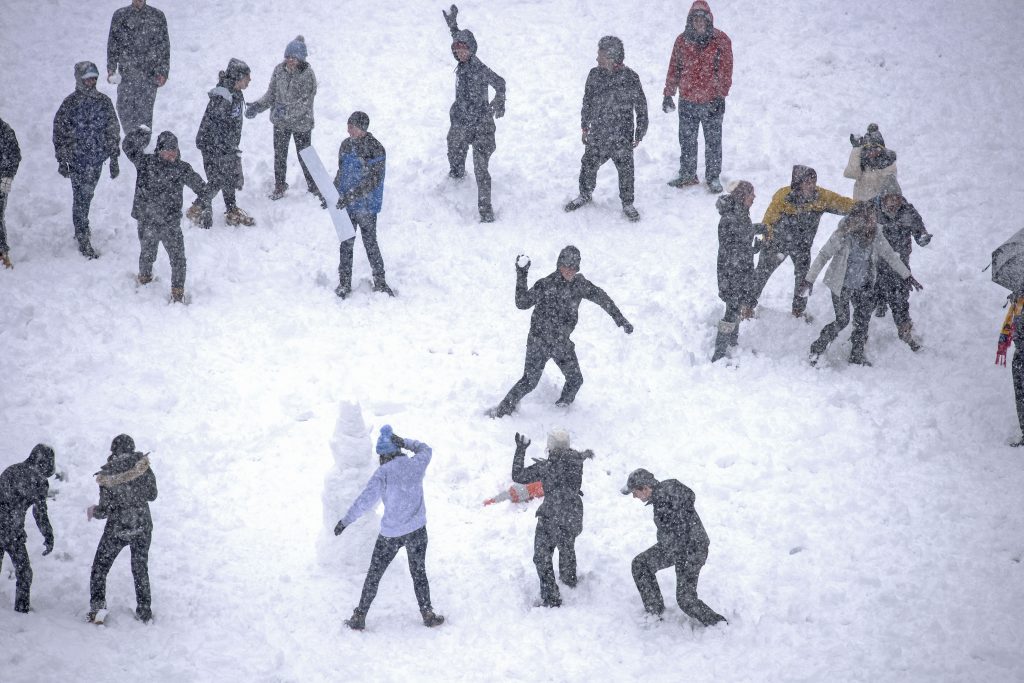Class of 2028!
Are you ready to apply to live on-campus?
The Priority Deadline for Incoming First-Year students to apply for housing has been extended to May 29!
By Matt Bertram
As the spring semester rapidly draws to a close, Carolina Housing wants to remind all student residents at UNC Chapel Hill to de-loft their beds before moving out. Failure to do so will result in fines. We understand that de-lofting your bed may seem like a small task, but it’s a crucial step in the move-out process.
If you never lofted your bed to begin with, you can safely disregard this reminder. However, if your bed is currently lofted, it is important to remember to de-loft it properly. To be considered properly de-lofted, a bed frame must be positioned between pegs 7 and 12, counting from the bottom of the leg posts. As an optional aid, students can rent mallets from their service desk to assist in loosening the bed frame.
We highly recommend seeking assistance from friends or family during move-out to make the bed de-lofting process easier and to prevent any damage to the bed frame. Please watch the video above to learn the correct steps necessary for de-lofting your bed.
De-lofting your bed might seem like a trivial task, but it's important for several reasons:
Avoid Fines: Failure to de-loft your bed can result in fines, which can be an unnecessary expense during an already busy and potentially expensive time of the semester.
Prevent Damage: De-lofting your bed correctly helps prevent damage to the bed frame. Damage to university property could result in additional charges.
Smooth Move-Out Process: De-lofting your bed ensures a smooth move-out process for you and your fellow residents. It’s a considerate action that helps everyone.
De-lofting your bed is a simple process. Here’s what you need to do:
Watch the Video: Watch the attached video to see the correct steps necessary for de-lofting your bed.
Seek Help: Seek assistance from friends or family during move-out. Having an extra pair of hands can make the de-lofting process much easier.
Loosen the Bed Frame: Use the optional mallet to assist in loosening the bed frame. This will make it easier to de-loft the bed.
Position the Bed Frame: Make sure the bed frame is positioned between pegs 7 and 12, counting from the bottom of the leg posts.
We hope this serves as a helpful reminder to de-loft your bed before moving out. If you have any questions or concerns, please do not hesitate to contact us.
Thank you for your attention to this matter.
By: Matt Bertram
In a world where artificial intelligence is becoming increasingly integrated into our daily lives, it's crucial to pause and consider the ethical implications of these powerful technologies. From chatbots like OpenAI's ChatGPT 4 to video creation tools such as OpenAI's Sora, the rapid advancement of AI presents both incredible opportunities and significant challenges.
At Carolina Housing, we understand the importance of fostering responsible AI usage, which is why we're proud to support the upcoming AI Ethics Panel organized by AI@UNC, a student-led AI organization. This panel aims to delve into the ethical considerations surrounding AI technologies and explore how we can harness their potential while mitigating unforeseen harms.
Scheduled for this Friday, February 23, the AI Ethics Panel will feature four esteemed UNC faculty members representing a diverse range of disciplines. These experts will lead an engaging discussion on the ethical implications of AI.
According to Riley Harper, the Director of Partnerships and Outreach for AI@UNC, the panel seeks to involve both faculty and students from all departments in a critical conversation about the ethical challenges posed by burgeoning artificial intelligence technologies. By fostering interdisciplinary dialogue, the event aims to cultivate a deeper understanding of the ethical considerations inherent in AI development and deployment.
The AI Ethics Panel will take place at Hanes Art Center, Room 121, from 5:30 to 7:30 pm on Friday, February 23. We encourage anyone interested in exploring the intersection of AI and ethics to attend this thought-provoking event. As an added incentive, food will be provided for attendees.
To secure your spot at the AI Ethics Panel, please RSVP via the following link: https://docs.google.com/forms/d/e/1FAIpQLSecxwug92cpd2C8wr2r-n5a_oEz-23aqT0KnSXXYNps2Do99g/viewform?pli=1.
Don't miss this opportunity to engage with leading experts and fellow students in a conversation about the responsible use of AI in our increasingly digital world.
By Sophia Raspanti
Last week, I sat down with Kyle Parker, the Campus Coordinator of Edible Campus, an organization dedicated to creating working landscapes across the UNC-Chapel Hill Campus.
“It’s like peeling back the layers of an onion,” says Parker. His words are absolutely correct. To most students, Edible Campus is the organization behind the multitude of small gardens – called satellite plots – that can be found on campus. While these students are correct, Edible Campus offers so much more: much more that is too-often overlooked.
What is Edible Campus?
“The gardens are never locked,” Parker states as he looks over the rows of fresh produce soaking up sunshine behind Davis Library. Throughout the day, and especially as spring weather sets in, students wander to the garden to study, spend time with friends, and look at the variety of fresh produce available. Volunteers pass through the garden to weed and water the plots. All of the produce in the gardens are available for students to pick for their own use. There are currently 10 satellite gardens that can be found in various spaces around campus, many found outside dining halls and common outdoor areas.
Throughout the year, Edible Campus also hosts a variety of creative events in the garden, from the wildly popular Harvest Moon Festival in the fall, to a week filled with activities to celebrate the Earth and the beauty of the world around us. During Earth Week, Edible Campus partners with campus organizations including ArtsEverywhere, Carolina Cupboard, and the University Library System to host movie nights, planting days, and creative programs. In the fall, environmental science students enter the gardens to learn and practice a variety of activities, including soil testing and plant propagation.
Edible Campus is a part of a greater system of beautiful outdoor spaces found on UNC-Chapel Hill’s campus: the North Carolina Botanical Gardens. Edible Campus is a community outreach program for the UNC community, and many gardeners that enjoy working in the satellite gardens can also be found in the Botanical Gardens, such as the beautiful Coker Arboretum found on North Campus. While Edible Campus has begun to take on a unique identity from the Botanical Gardens, the two still work closely together to create and improve outdoor programs and initiatives on campus. Recently, the Botanical Gardens and Edible Campus will be working on the “Budburst Program”, in which students can work to measure pollination rates on campus.
The History: How It All Started
While Edible Campus has become an integral part of UNC, it wasn’t always that way. In fact, Edible Campus may not have been a part of UNC if it had not been for a student and Chancellor’s Fellow in 2015: Emily Auerbach.
In 2015, Emily Auerbach, a UNC graduate and Chancellor’s Fellow planted the seed. For her senior thesis project, Auerbach aimed to create “the nation’s first public university where edible and medicinal plants are integrated into landscapes throughout campus.” Auerbach wanted to create outdoor landscapes where education, workshops, events, and fresh food could be available for all students. Auerbach’s vision reached Carol Folt, the Chancellor of UNC at the time. Following her graduation, Folt hired Auerbach as a Chancellor’s fellow in order to create a feasibility report on the landscapes that included information on sunlight viability, soil composition, and proximity to water. After receiving the report, Folt contributed $150,000 to the project and landscaping was done to prepare the land for the gardens. Many campus and community volunteers came together for the first day of planting, putting in over 300 plants and trees across five different campus garden sites.
Following the end of Auerbach’s fellowship, Edible Campus became a part of the North Carolina Botanical Gardens as a community outreach program. Laura Mindlin took charge as the UNC Edible Campus Coordinator until 2020, when she then departed for graduate school. Following Mindlin’s departure, Kyle Parker became a part-time horticultural specialist.
Parker had worked with the gardens for almost two years when Laura Mindlin announced her plans to return to graduate school, leaving an open position for the Campus Garden Coordinator, but as Parker stepped up, COVID-19 stepped in, leading to a campus-wide hiring freeze. While students and faculty went into lockdown, the gardens would largely be abandoned, leading to a pause in the garden’s operations. Parker worked diligently to plant cover crops in the plots to preserve them, and when the hiring freeze ended in the fall of 2020, Parker was hired full-time as Coordinator of Edible Gardens. Since then, Parker has made it his mission to bring the gardens to as many students as possible and started working with groups of students to make them more accessible for all.
Student Involvement: The Student Leadership Team
Parker smiled as he spoke about the Student Leadership Team, a group of students he works with to continue Edible Garden’s mission. The student leadership team is both a volunteer and paid-position for work-study students, and Parker has ensured that much of the funds for Edible Campus go towards paying the students livable wages. Parker also hosts summer interns at the gardens as well as any students that would like to volunteer.
The Student Leadership Team works on multitudes of essential projects to ensure the smooth operations of the gardens -- including writing grants, creating posts for social media, and collaborating with other campus organizations. The students are currently working on expanding internet access to outdoor garden spaces and putting in lights so that students may study outdoors later in the evening. Additionally, the student leadership team has also created many exciting projects together, including the Carolina Cookbook: A College Student’s Guide to Healthy, Affordable, & Seasonal Eating at Carolina, which can be found on the Edible Campus website.
Student involvement in the gardens doesn’t stop with student leadership and volunteering. Edible Campus partners with a variety of campus organizations including Student Government, ArtsEverywhere, Davis Library, Carolina Cupboard, the Residence Hall Association, Carolina Dining Services, Sustainable Carolina, and more. Together, Edible Campus and their partners bring arts, creative spaces, fresh food, and more to the student body at Carolina. Students hope to expand the gardens to the Gilling’s School of Public Health as well as additional places on South Campus.
Computer science students have created an interactive plant map that shows what’s growing in each satellite gardens, so that students foraging for produce know exactly where to look. The map also includes nutritional and cooking information.
Looking Towards the Future: The Garden Blossoms
Edible Campus has become a beloved part of life at UNC, and many other universities are looking to follow suit. Parker has begun to work as a consultant with other U.S. universities, as well as universities in Italy, Germany, and other nations abroad. Looking towards the future, Parker says that UNC students have much to look forwards to from the gardens, with programs such as horticultural therapy at the Botanical Gardens, and the new Budburst Program, a community science initiative in which all campus and community members can help contribute to scientific knowledge on pollinator species.
Final Thoughts
My interview with Parker opened my eyes to the many initiatives and opportunities Edible Campus offers to students, as well as left me with a smile on my face. In Parker’s words: “this is a space where there are basically zero negative interactions,” and I’d have to agree. In these last few weeks before my student career at Carolina comes to an end, I am now most often found behind Davis Library, enjoying the sunshine, and planting a few new seeds at Carolina.
By Kylie Ferguson
Hi! My name is Kylie, and I am a first-year living in Hinton James. Here are a few of my favorite tips and tricks for living on campus.
Things to bring for on-campus housing:
Advice for move-in day:
My favorite spots to hang out once you arrive!
By Sophia Raspanti
Most UNC students relate Phillips Hall to difficult math problems and overwhelming physics lectures, but for a small group of students, Phillips transforms into a spirited dance hall in the evenings. As night falls on Tuesdays and Thursdays, the sounds of lively jazz music can be heard from Phillips room #385, as students are transported back to the 1920s for an hour of swing dance. It’s hidden spaces like these that encapsulate the vibrant experience of campus living; but, it’s truly the students of Carolina Swing Dance that make evenings in Phillips so magical.
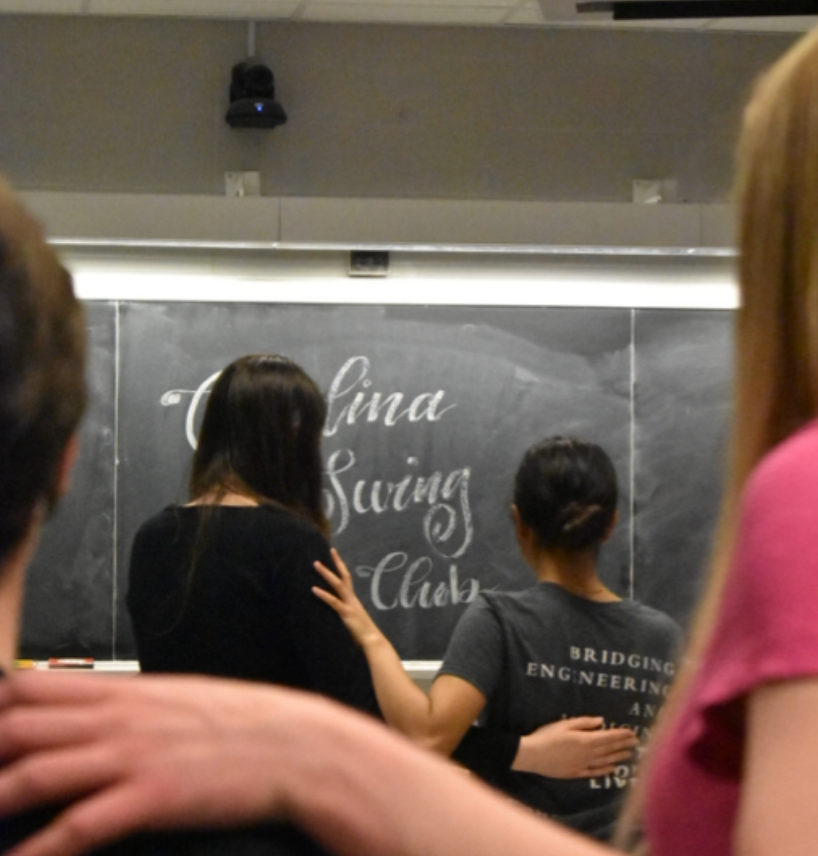
While many students new to dance may feel initial hesitation, the student leaders of Carolina Swing Dance make comfort and confidence a priority, creating a warm and welcoming environment for everyone. “There’s no partner or experience necessary!” club president and graduating senior Nita Prabhu states on Heellife, “Just bring your lovely self and a can-do attitude!”
“We don’t have strong rules here… you don’t have to be a dancer, you don’t have to be particularly good at it,” laughs Casey Lepley, an assistant teacher of Carolina Swing Dance Club, “We’re here for an hour to put our phones away, talk to people, learn something, and overall de-stress.” True to her words, every and all students are welcomed with open arms to dance, swing, and meet students with similar interests.
While many students regularly attend the club for lessons and dance, many curious students studying late in Phillips also pop their heads in from time to time. Some club members have recollected on their chance discovery of Carolina Swing, which is a testament to one of the many joys of living on campus: unexpected but exciting discoveries and a chance to try something you may have never done before. “I feel like Carolina Swing Dance fits into the Carolina Community because it is open for everyone regardless of your experience,” Casey laughs, referring to a handful of students hard at work who take a few moments to enjoy the music and dance.
Additionally, due to the evening meeting time, many students living in on-campus residence halls are happy that Phillips is just around the corner! In a funny coincidence, all of the student leaders of Carolina Swing live on campus, most of them only a 5 to 10-minute walk away.
In addition, the social aspects of Carolina Swing offer a nice opportunity for students to meet, connect, and make new friends. Many of the students involved also hold other important roles on campus, including leading other clubs, or working as Residence Hall Advisors in nearby living communities.
The students of Carolina Swing reminisced on how the club has brought them together, with Annie Veum and Maddie Behnke, both assistant teachers who are planning on leading the club next year, reminisced on how their close friendship blossomed through swing dance. Club president Nita Prabhu recollected on how her freshman year roommate introduced her to the world of swing, which has become a meaningful part of her experience at UNC.
As the semester draws to a close, the students of Carolina Swing have begun to prepare for leadership changes and an exciting new year. However, there are still many evenings left in the semester for students that would like to experience swing in Phillips #385.
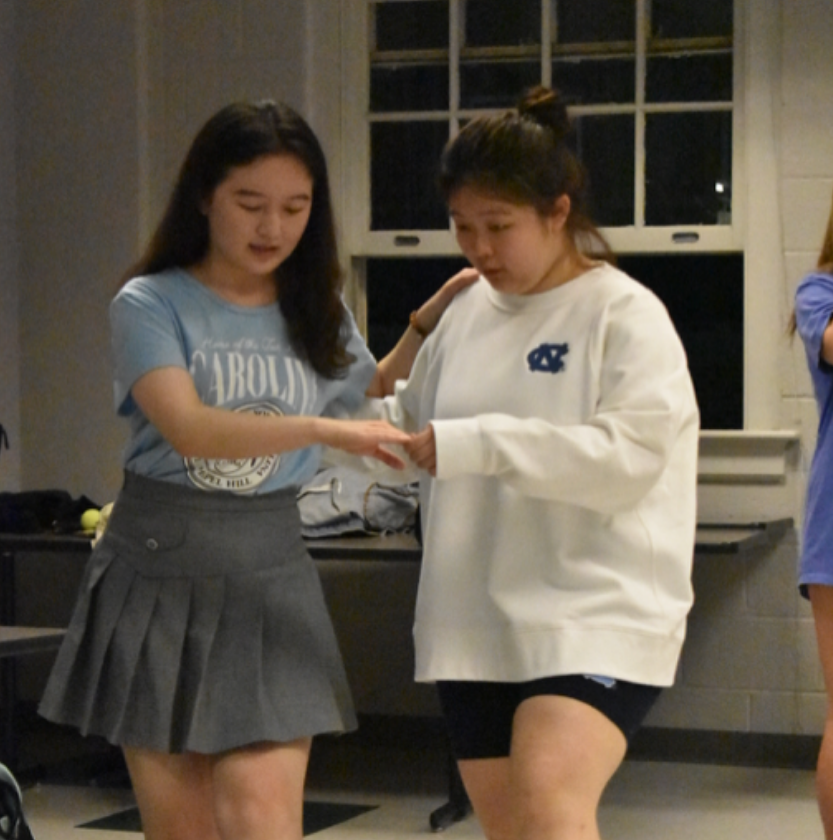
For our second episode of Campus Connection: A Carolina Housing Podcast, we invited the CEO of Chapel Thrill Escapes, Sameer to the show! Sameer, a current Senior here at Carolina, took the torch of Chapel Thrill Escapes from his predecessors and has absolutely ran with it! Chapel Thrill Escapes has endlessly explored bigger and better ideas in 2022 and 2023. We got to hear the whole backstory, as well as how everything works behind the scenes of running the first on-campus, student-run escape room in the country!
Students can experience the escape room (currently themed to "Ramses in Wonderland") by reserving a time on their website and then heading over to Cobb! Do you think you can escape wonderland? If you want a hint on how to do it, listen to the full episode wherever you get your podcasts!
By Samantha Thompson
Located in the basement of Avery Residence Hall, Carolina Cupboard is a free food pantry open to the UNC Community. They operate Tuesday through Thursday from 10AM to 4PM both by appointment and walk-in and welcome all students and members of the UNC Community regardless of financial need. Despite this, it remains an extremely underutilized resource on campus. This year, Carolina Housing, as well as the Carolina Cupboard team, are seeking to change that.
Being successful as a student relies on many functions but none of those functions can happen unless you are well-fed. Food is necessary; without it, the consequences can quickly become dire. Still, on our campus, over 22% of students face food insecurity—and across the nation, the number nearly doubles at over 40%. The reason behind these statistics varies from student to student and campus to campus. However, financial struggles and work/school/family obligations remain leading factors in food insecurity. In essence, the lack of food for our peers is down to insufficient money and time.
Carolina Cupboard, founded in 2014, seeks to alleviate these struggles for the UNC community. Current president Kayla Brown says, “Our purpose is to connect the broader community for accessible and equitable resources with no restrictions.” Its location makes accessibility simple for students as it is a walkable distance to RU, U, and NU bus stops, helping students who may not have time or the ability to get quick groceries off campus. The pantry includes frozen and fresh goods & produce and various supplies. The Carolina Cupboard welcomes those in need but also welcomes collaboration with other student organizations on food and supply drives and personal donations. Additionally, if you need more information, Carolina Cupboard encourages students to reach out or explore their website, linked here. But how does it work? Really, it’s not as complicated as you may think.
First, decide when you want to visit and whether you want to do so as a walk-in or through appointment. If you would feel more comfortable privately utilizing the pantry, making an appointment before arrival is recommended. As previously mentioned, the pantry is located in the basement of Avery Residence Hall (295 Ridge Rd, Chapel Hill, NC 27514). The pantry can be accessed through the side door of the building.
Next, once you’re there, check-in in with a Carolina Cupboard volunteer. It is important to note that you do not need to demonstrate financial need in order to utilize the pantry. However, your PID is required! They will walk you through the process if you have any other questions, but if not, go ahead and grab what you need! There are no limitations to what you can get (except for frozen goods). Help maintain a tidy space for others who utilize the cupboard, and once you’re finished, consider passing the resource to others and visit again soon!
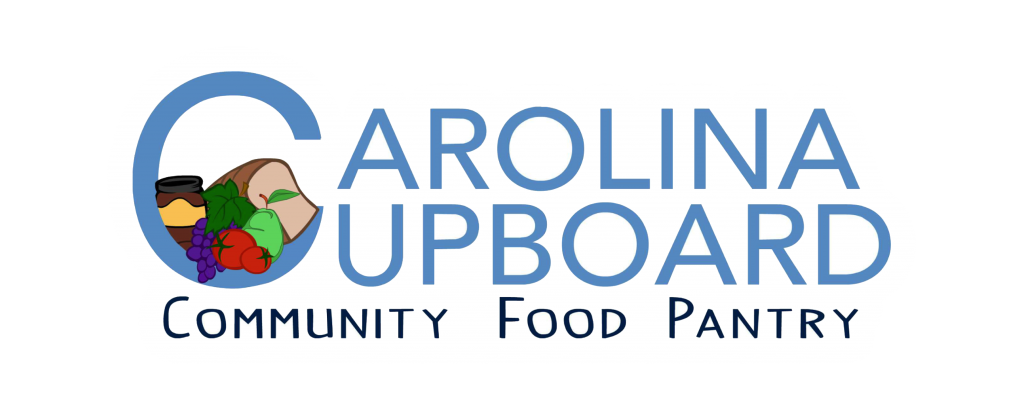
For our very first episode of Campus Connection: A Carolina Housing Podcast, we invited the Director of Dining, Christen Flowers, to chat with us! We got a glimpse behind the curtain of how Carolina Dining Services plans and decides on new food options for students, and got some insider information on what new restaurants and food shops are coming soon to UNC!
If students have thoughts or opinions on what dining options they would like to see on campus, they can join the Student Dining Board. The Student Dining Board is a student group that meets weekly during the academic year to discuss anything related to the food program at UNC Chapel Hill. The board includes members from RHA, Student Government, Graduate and Professional Students, At-Large members and key staff members from Dining, Student Affairs and Housing. This opportunity allows students to have a voice in the decision-making process of selecting food concepts.
If students aren't able to join the Board, they can attend focus groups to share their thoughts, or just reach out to CDS directly through social media or their website!
To learn more about how CDS operates and about what new food concepts are coming to campus, listen to the full episode wherever you get your podcasts!
By Sophia Raspanti
It’s no secret: the library system at UNC is incredibly impressive. With over 10 libraries open to students, UNC offers a variety of study spaces where students can congregate and work. Aside from the library system, UNC is home to multitudes of gorgeous, relaxing, and quiet study spaces that can be found all over campus. At Carolina Housing, we have compiled a list of 11 hidden study spots on campus that we recommend checking out! Happy studying!
Graham Memorial Library
Score: 4.5/5
Found on far North Campus, Graham Memorial Hall is home to Honors Carolina, as well as a beautiful lobby that is perfect for studying! The Graham Memorial lobby is open Monday through Thursday, from 7:30am – 4:30pm. The lobby is home to comfortable chairs, couches, tables, and even two working fireplaces! A wall of windows brings beautiful light into the space and looks out on a patio space that is great for studying when the weather is nice! This space is so beautiful, calm, and relaxing: we only wish it was open longer!

Wilson Music Library
Score: 5/5
Wilson Library stands at the south boundary of Polk Place, and is home to the gorgeous Farrington Reading Room, the rare books collection, and the Wilson Music Library. This special library offers a stark change from the silent Farrington Reading Room upstairs, and is a relaxing space to study, all while surrounded by music! The Wilson Music Library is open Monday through Friday at 9:00am to 5:00pm. The library is found in the basement of Wilson Hall, so if you are looking for respite from the heat and sun, we highly recommend checking this location out!
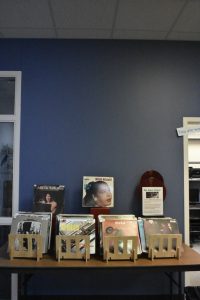
Hill Hall
Score: 5/5!
Hill Hall is a state-of-the-art recital hall for music students at UNC. Hill Hall offers a beautiful, modern, and open space to study in. With many windows and beautiful woodwork, students can study in the rotunda of Hill Hall, on either the first or second floors. Hill Hall is open 7 days a week from 7:30am – 10:00pm. Talk about great hours! We recommend students living in the Kenan community to check this space out, as it is very close!

Stone Center Balcony
Score: 5/5
Found across the street from Genome, the Stone Center is home to a host of African American literature, art, and culture. The Stone Center is also a wonderful place for students to study, as there are many open spaces on both the first and second floor that offer quiet, open places for students to work. The balcony area of the Stone Center is hidden within the trees, offering an opportunity to work surrounded by nature! The Stone Center operates Monday-Friday from 9:00am – 5:00pm. We highly recommend you explore this space as the weather gets warmer!


Venable/Kenan Hall
Score: 5/5
Venable and Kenan Hall are part of the gigantic chemistry building complex found on main campus. Aside from beautiful architecture, this complex offers many study spots throughout the floors and buildings. Located along South Road, this building is equally accessible for students living on both south and north campus. There is a lot of room and lots of space to spread out, so there are many unique places for students to settle down and study! The building is open Monday through Friday from 7:30am to 10:30pm, leaving plenty of time to check it out!


Marisco Hall
Score: 7.5/5
Located at one of the southernmost points on campus, Marisco hall is a beautiful building home to biological research at UNC. The first floor lobby area is filled with tables, chairs, and couches, as well as an on-site coffee shop: Saledelias! Marisco is open to all students on Monday-Friday from 6:00am – 6:00pm. While this location may feel a bit far of a walk for students, we promise that the travel is worth it... especially if you live on South Campus!

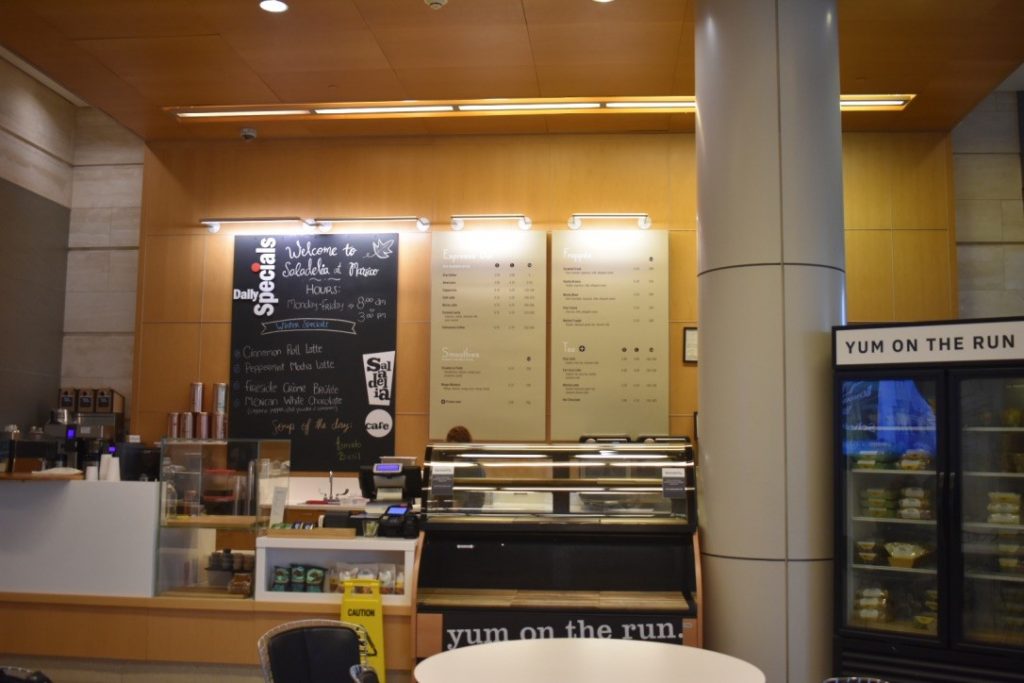
FedEx Global Building Rooftop Study Area
Score: 10/5!
The FedEx global building is home to many international services offered at UNC. The building is also home to large open spaces with comfortable chairs and tables, perfect for studying or chatting with friends. There is also a coffee shop on the first floor, where students can stop before heading up to the roof to study! This study spot is incredibly unique: we haven’t seen many study spaces on rooftops anywhere else! The FedEx global building is open Monday through Friday from 7:30am to 7:30pml



Campus Y
Score: 10/5
Found on north campus, across from the Old Well, the Campus Y is a collaborative space where students, staff, faculty, and community members work together to advocate for social justice. Campus Y is also home to cozy study spaces and a 100% student-run coffee shop: Meantime Coffee! The Campus Y is located near the Old w]Well, and is only a short walk from both Old East and Old West residence halls.

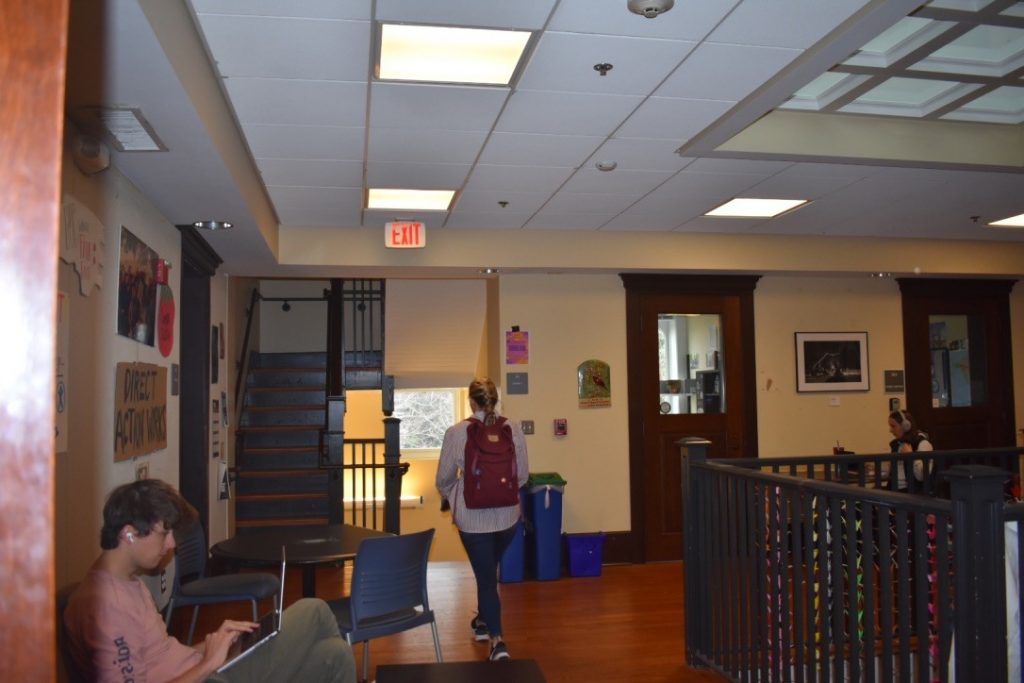
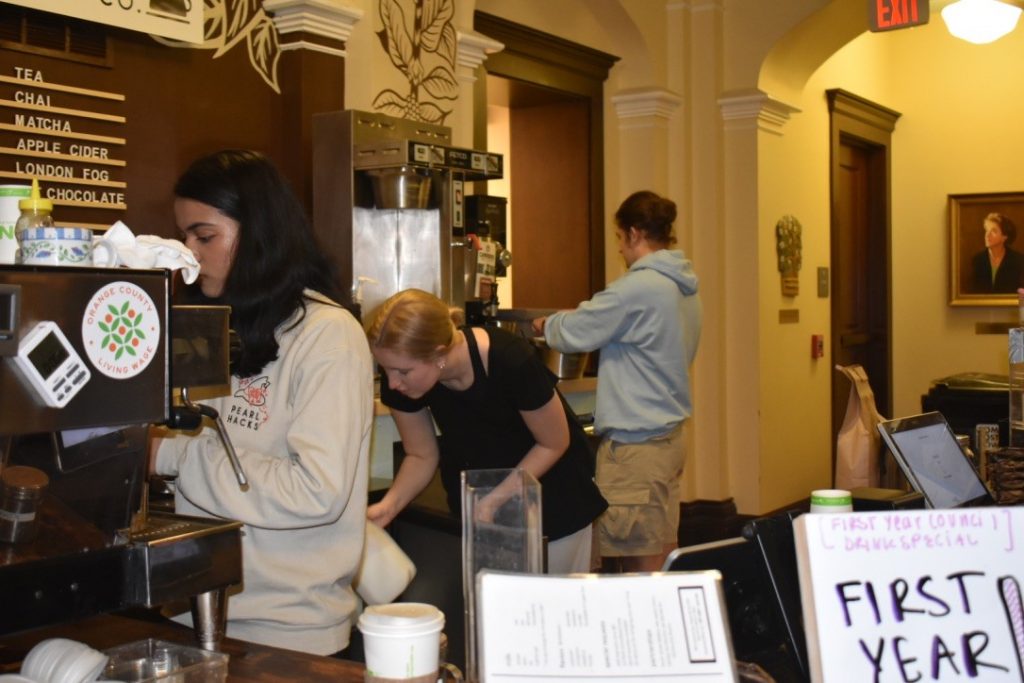
Health Science Library Fourth Floor
Score: 5/5
Found in the heart of UNC’s research campus, the Health Science Library is a beautiful, modern, and open space that is perfect for studying solo and working with friends and classmates! The Health Science Library offers many spaces perfect for group work, as well as many quiet spaces perfect for independent study. The library is connected to a coffee shop, Friend’s Café, in case you’d like to grab a latte before heading in for a few hours of studying! The Health Science library is open Monday through Thursday from 8am to 5pm, Friday from 8am to 8pm, and Sunday from 12pm to 8pm. While this location may be a bit of a walk from most North Campus residence halls, this library is very accessible to students on South Campus!
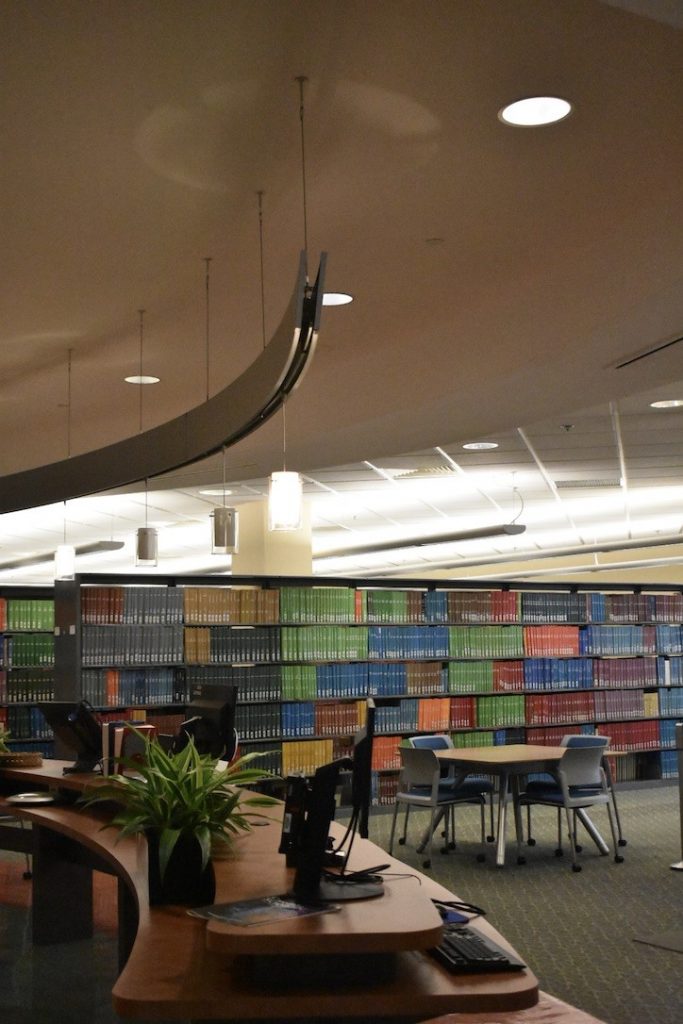


Sloan Art Library
Score: 4.5/5
The Sloan Art Library is found at the edge of north campus, near Old West and Old East! The Sloan Art library is a quiet, secluded space that offers a serene study spot for UNC students. Students can reserve tables to study at, and there are a variety of spaces hidden between the bookshelves for homework marathons. The Sloan Art Library is open Monday through Friday from 9am to 5pm, and Sundays from 4pm to 8pm.
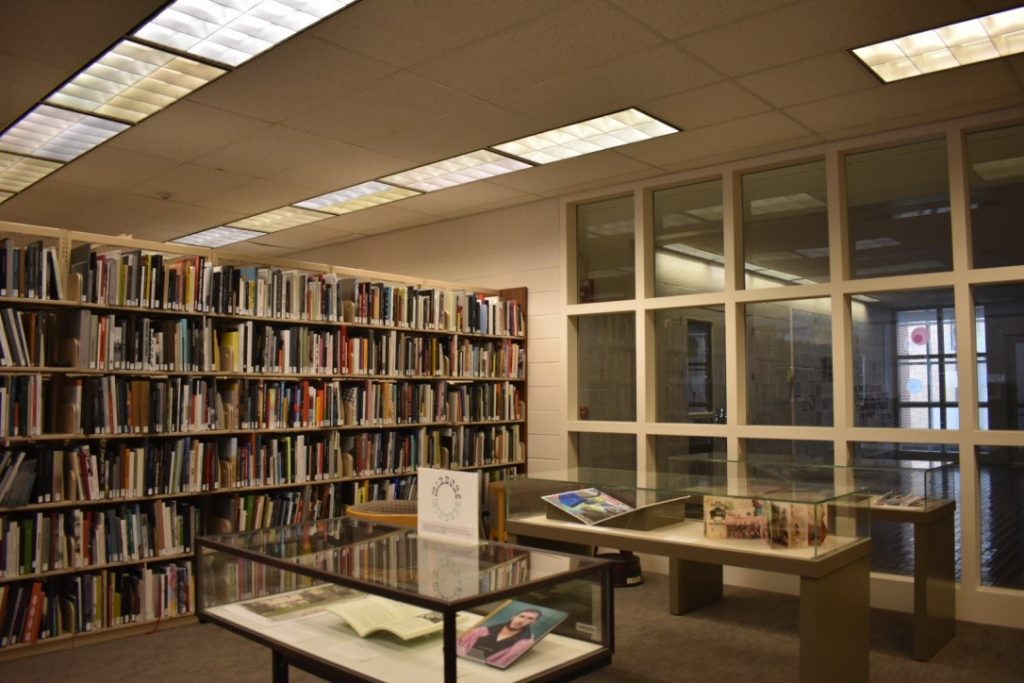
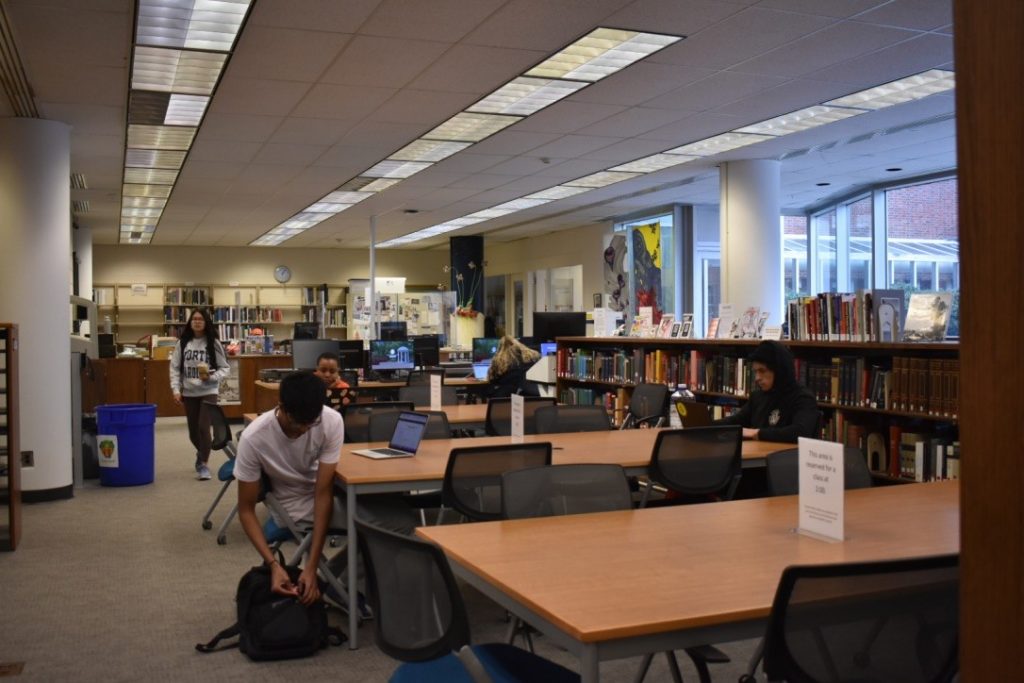
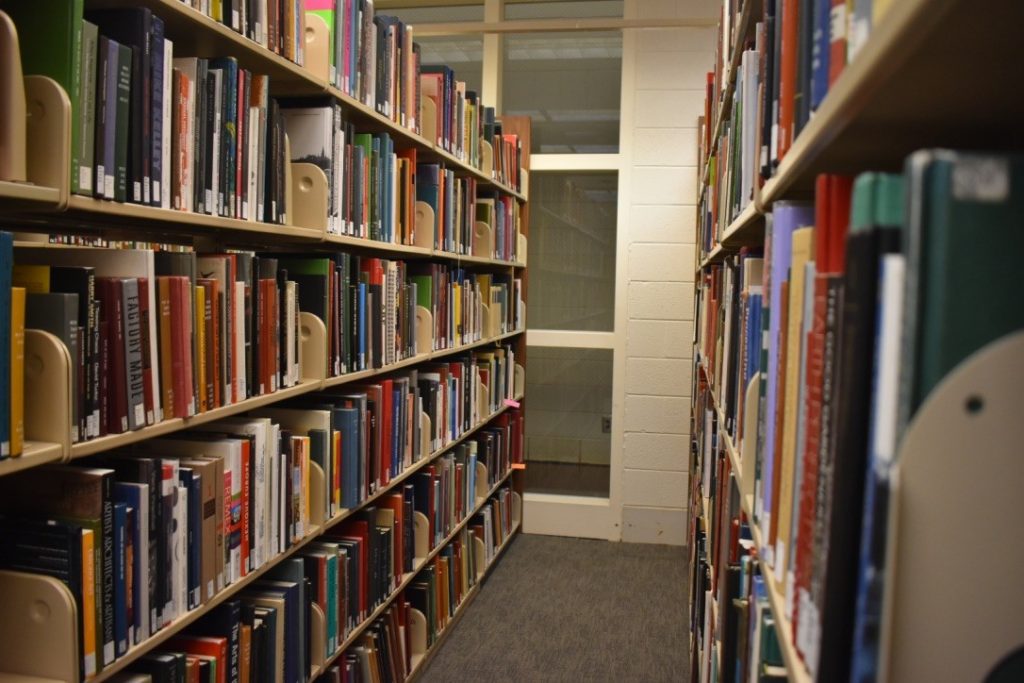
By Samantha Thompson
If there is one thing you can count on, it’s that you can never count on North Carolina weather. Today may be 70 degrees, but tomorrow, there will be ice on the ground. It’s best to stay ready, so you don’t have to get ready. Central North Carolina typically experiences snowstorms early in the year—from January to February, sometimes even going into early March. Here are the best tips for preparing for our upcoming wintery days.
UNDERSTANDING UNC ADVERSE WEATHER POLICIES
You’ve probably seen the emails when inclement weather is coming—the UNC Adverse Weather Conditions system helps guides students, staff, and faculty on how best to proceed in the case of extreme weather. Here are the three conditions:
These updates will be available to students via their email.
SHELTER INSIDE
As fun as a snow day is, it's important to be safe. Ice makes the road and walkways very dangerous, so you should be careful when travelling and only do so when necessary. You’ll get plenty of warnings before the inclement weather begins, so take this time to stock your room with some food and get comfortable. Before the winter weather hits, you can head to the Carolina Cupboard and stock up on food and supplies. They are open Tuesday-Thursday from 10AM to 4PM, so planning ahead of time is important. It’s a good time to catch up on work or to just have a relaxing day inside!
NOW GRAB YOUR BOOTS AND YOUR COAT
It's going to be cold...extremely cold. Don’t underestimate the weather. If you choose to go outside and enjoy the snow, be sure to dress appropriately and adequately.
Layering is important because each layer does something different to protect you from the weather. Experts recommend three layers; a base, a middle, and an outer. The base layer is the sweat-wicking layer, the middle acts as insulation to keep you warm, and the outer shields you from the wind and snow. If you plan on going outside, especially for extended periods of time, each layer is very important for your health and safety.
Besides staying warm, slick walkways make travel dangerous so it is important to wear the proper footwear. Shoes with good traction help prevent you from slipping. You also want to make sure these shoes are well insulated and that you wear thick socks or even multiple pairs to prevent frostbite.
Other accessories, such as scarves, gloves, and hats, are also snow essentials!
FIND SOME FUN
Yes, everyone says it, but the most important thing is to have fun. If you want to go outside and play in the snow, trust me, you won’t be the only one. Students gather in places all around campus to sled, have snowball fights, or enjoy the snow. As long as you’re bundled up and safe, you should absolutely get out and enjoy the snow.
